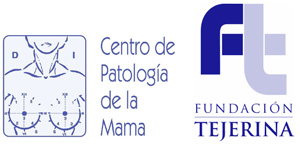Even if you have already had breast cancer, this fact can have important implications for you and your family.
Women who have a BRCA gene mutation should begin screening at a younger age, may take medication that reduces the risk of breast cancer (chemoprevention), or even decide to have cancer risk reduction surgery.
Frequently asked questions
When should I go to a Genetic Counseling consultation?
Whenever you have concerns about the possibility of suffering from hereditary cancer or not, you can go to a Genetic Counseling consultation where they will explain what it is to have a predisposition to cancer and the actual chances that you will suffer from it.
What does the Genetic Counseling consultation consist of?
At the Genetic Counseling consultation, the family cancer specialist will explain what having hereditary cancer consists of, its implications on a personal and family level, and how to deal with this diagnosis.
The first step in any Genetic Counseling consultation is the compilation of all information about the patient’s personal and family history. This is a veryimportant step, as it will be the basis for making many important decisions. Therefore, when you come to this consultation, you should try to remember and collect all the data you have about the different events in your family, related mainly to cancer.
Based on this first consultation, the specialist will guide you on whether or not to have a genetic test to try to rule out the hereditary origin of cancer in your family.
If a genetic study is indicated, our specialist will explain not only the implications that the possible test results may have for you, but also for your family.
Only when you have all the information about the possible results of the test, and once all your concerns have been resolved, will you be able to decide whether or not you want to do it.
Why go to the family cancer risk consultation?
It is important for patients with a mutation to understand all the information about their particular case in a clear and easily understandable way. The staff must explain what it means to be a carrier of a mutation, what implications it has for their health, how it can affect their relatives and, mainly, what can be done from now on to prevent the appearance of cancer or so that if it appears it can be diagnosed at an early stage.
Once the patient has been properly counseled by a family cancer specialist and has understood all the information, theywill be able to decide how they want to face their future.
What patients or families are more predisposed to suffering from hereditary breast and/or ovarian cancer?
We should seek the help of a family cancer specialist when the following situations occur in the same family:
– Breast or ovarian cancer in a person under 35 years of age, with no family history.
– Male breast cancer at any age.
– Breast and ovarian cancer in the same person.
– Breast or ovarian cancer in at least 2 first-degree relatives, as long as one of them is under 50.
– Bilateral breast cancer.
– Three or more cases of breast or ovarian cancer in first or second-degree relatives, regardless of age.
– Detection of a mutation in a direct relative.
– Women of Ashkenazi Jewish descent with a family history of breast or ovarian cancer.
Regardless of these criteria, do not hesitate to consult your doctor if you think that your family history may pose hereditary risk or if you have any questions about Hereditary Cancer.
What are the BRCA1 and BRCA2 genes?
BRCA1 and BRCA2 are genes involved in cell growth and division. An alteration (mutation) in any of these genes would interfere with the regulation of these cellular functions, therefore increasing the probability of developing cancer. Only about 5 to 10 percent of all breast and/or ovarian cancers are inherited. This assumes that the vast majority are therefore sporadic, that is, they occur without any hereditary cause behind them. Out of the cases that are inherited, nearlyone third are due to mutations in the BRCA1 gene and about one third are due to mutations in the BRCA2 gene. The remaining group is due to one or more unknown genes. Individuals with a mutation in any of these genes can develop cancer at an early age and can develop bilateral breast cancer.
BRCA1 and BRCA2 are genes involved in cell growth and division. An alteration (mutation) in any of these genes would interfere with the regulation of these cellular functions, therefore increasing the probability of developing cancer. Only about 5 to 10 percent of all breast and/or ovarian cancers are inherited. This assumes that the vast majority are therefore sporadic, that is, they occur without any hereditary cause behind them. Out of the cases that are inherited, nearlyone third are due to mutations in the BRCA1 gene and about one third are due to mutations in the BRCA2 gene. The remaining group is due to one or more unknown genes. Individuals with a mutation in any of these genes can develop cancer at an early age and can develop bilateral breast cancer.

